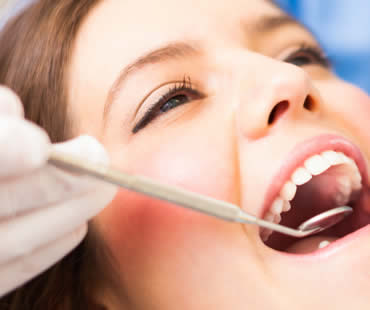
Smile Brightly: A Comprehensive Guide to Senior Dental Health
Dental health is important for everyone, but it becomes even more crucial for seniors.
As we age, our bodies go through various changes that can affect our oral health.
Additionally, seniors often have other health conditions that can impact their teeth and gums as well. In this article, we will discuss the importance of dental health for seniors and the common dental issues they face.
Importance of Dental Health for Seniors
Maintaining good oral hygiene is essential to overall health and well-being, especially for seniors. Poor dental hygiene can lead to a variety of issues such as gum disease, tooth loss, and even more serious medical conditions like heart disease and stroke. Seniors with chronic medical conditions may also be at higher risk for dental problems due to medications they are taking or because they have weaker immune systems.
Common Dental Issues Faced by Seniors
Seniors often face a multitude of dental problems that are unique to their age group. One common issue is periodontal disease or gum disease which is caused by bacteria attacking the gums and bone that hold teeth in place.
Seniors may also experience dry mouth syndrome which occurs when there isn’t enough saliva production in the mouth leading to increased risk of cavities and infections. Additionally, many seniors struggle with tooth decay due to decreased enamel protection on their teeth as well as wear-and-tear over time from regular use.
Overall, it’s clear that maintaining good oral hygiene is essential for seniors’ overall health. In the next section, we’ll discuss some tips on how seniors can take care of their teeth and prevent these common dental issues from occurring or getting worse.
Dental Care Tips for Seniors
As we age, our dental health becomes more delicate and requires extra attention. Here are some simple tips to maintain dental health in seniors.
Brushing and Flossing Techniques
Regular brushing and flossing is essential for a healthy mouth. Seniors should brush their teeth twice a day with fluoride toothpaste, preferably after meals. They should also floss at least once a day to remove any food particles stuck between the teeth.
Toothbrushes with soft bristles are gentle on the gums, which can be sensitive in seniors. Electric toothbrushes can be especially helpful for those with arthritis or limited mobility, as they can make brushing easier.
Importance of Regular Dental Checkups
Seniors should visit their dentist at least twice a year for regular checkups and cleanings. Regular checkups can help detect problems early on before they become serious issues that require more invasive treatment. A dentist may also recommend X-rays to identify problems that are not visible on the surface, such as decay between teeth or bone loss due to gum disease.
Denture Care and Maintenance
For seniors who wear dentures, it’s important to take proper care of them to maintain good oral health. Dentures should be removed every night and cleaned thoroughly using denture cleaner or mild soap and water. The mouth should also be cleaned before putting dentures back in place.
If dentures become loose or ill-fitting over time, it’s important to see a dentist for adjustments as this can cause irritation of the gums or other oral health issues. Overall, following these tips will ensure that senior citizens maintain good oral hygiene and prevent dental problems from arising later down the line.
Nutrition and Oral Health for Seniors
Good nutrition is essential for maintaining oral health, especially in seniors. As people age, their bodies require more nutrients to maintain healthy teeth and gums.
In addition, seniors are more prone to certain dental problems such as gum disease and tooth decay. By eating a healthy diet rich in vitamins and minerals, seniors can help prevent these problems.
Foods to Avoid
Seniors should try to avoid sugary and sticky foods that can cause tooth decay. This includes candy, soda, and other sweets. Starchy foods such as breads, crackers, and chips can also be harmful because they tend to stick to the teeth and promote bacteria growth.
Citrus fruits like oranges and lemons should be consumed in moderation due to their high acidity levels that can erode tooth enamel over time. Additionally, seniors who wear dentures or have missing teeth may find it challenging to eat hard or tough foods such as popcorn or nuts.
Foods to Include in the Diet
Seniors should prioritize a well-balanced diet consisting of fruits, vegetables, whole grains, lean protein sources like fish or poultry without bones that could damage the teeth while chewing them. Dairy products such as milk cheese yoghurt are also great options for getting enough calcium which helps keep the teeth strong. Certain foods can help promote saliva production which is crucial for washing away food particles after meals thus preventing plaque buildup; these include crunchy fruits like apples or carrots/celery sticks nuts etc.
Importance of Hydration
The importance of hydration cannot be overstated when it comes to oral health for seniors. Dehydration increases the risk of dry mouth syndrome which is a common condition among older adults caused by reduced saliva flow. Dry mouth can cause a host of dental problems including tooth decay and gum disease as the lack of saliva makes it easier for bacteria to thrive in the mouth.
Seniors should aim to drink at least 8 glasses of water per day and avoid caffeinated, sugary, and alcoholic beverages which can worsen dehydration. For those who have difficulty drinking enough water due to medication side effects or other reasons, they may be advised to use saliva substitutes or chew sugarless gum to promote saliva flow.
Common Dental Issues Faced by Seniors
Gum Disease: The Silent Killer of Teeth
Gum disease is one of the most common dental health issues faced by seniors. It starts with the inflammation of the gums, which can lead to bleeding while brushing or flossing. If left untreated, it can progress to periodontitis, which causes loss of bone supporting the teeth and eventual tooth loss.
Studies have shown that gum disease is also linked to other health issues such as heart disease and stroke. To prevent gum disease, seniors should maintain good oral hygiene habits such as brushing twice a day, flossing daily, and scheduling regular dental checkups.
Tooth Decay: A Preventable Problem
Tooth decay is another common dental issue faced by seniors. It occurs when plaque builds up on teeth and combines with sugar or starches from food to produce acid that attacks tooth enamel.
This can result in cavities, sensitivity or even tooth loss. Seniors can prevent tooth decay by practicing good oral hygiene habits such as brushing regularly with fluoride toothpaste and flossing daily.
Dry Mouth Syndrome: The Side Effect You Don’t Want
Dry mouth syndrome is a condition characterized by reduced saliva flow in the mouth. This condition can lead to many dental problems including bad breath, gum disease, and tooth decay.
Dry mouth syndrome is often caused by medication side effects or other underlying medical conditions such as diabetes or radiation therapy for cancer treatment. Seniors can manage dry mouth syndrome by drinking plenty of water throughout the day and chewing sugar-free gum to stimulate saliva production.
Overall, maintaining good oral hygiene habits and scheduling regular dental checkups are essential for preventing these common dental issues faced by seniors. It’s never too late to take care of your teeth!
Special Considerations for Senior Dental Health
As we age, our dental health needs change. Seniors may have to deal with a range of dental issues that require special consideration. Here are two of the most common considerations:
Medication Side Effects on Oral Health
Many seniors take medications that can affect their oral health. Some medications cause dry mouth, which can lead to tooth decay and gum disease.
Dry mouth is also a common side effect of chemotherapy and radiation therapy for cancer. Seniors should talk to their dentists about any medications they are taking to determine if there are any oral health risks associated with them.
Teeth Grinding and Clenching in Seniors
Teeth grinding (bruxism) and clenching can cause significant damage to teeth, including cracked teeth, worn enamel, and jaw pain. These conditions are often caused by stress or anxiety but can also be a side effect of certain medications or sleep disorders such as sleep apnea. Seniors who grind or clench their teeth should talk to their dentists about options for preventing further damage.
In addition to these two specific considerations, seniors should always keep up-to-date with regular dental check-ups and maintain good oral hygiene habits like brushing twice daily with fluoride toothpaste and flossing at least once per day. By following these guidelines and working closely with their dentist, seniors can keep their smiles healthy for years to come!
Dental health plays a crucial role in the overall well-being of seniors.
Regular checkups and proper oral hygiene practices are essential for maintaining healthy teeth and gums.
Seniors should also pay attention to their diet, avoiding sugary foods, and staying hydrated. Additionally, they should be aware of the side effects that medication can have on oral health and seek dental advice accordingly.
Recap of Key Points on Senior Dental Health
– Dental health is crucial for seniors’ overall well-being. – Proper oral hygiene practices such as brushing, flossing, and regular checkups are necessary.
– Seniors should avoid sugary foods and beverages that can cause tooth decay. – Staying hydrated is essential for good dental health.
– Seniors must be aware of medication side effects on their teeth and gums. – Denture care is vital for those who wear them.
Taking care of one’s teeth is a simple yet essential aspect of maintaining good health at any age. By following these tips, seniors can enjoy healthy teeth and gums for years to come.
Remember: prevention is always better than cure when it comes to dental issues. Taking proactive steps towards maintaining good oral hygiene will save you from more complicated (and expensive) procedures down the line.
Take the first step towards optimal oral hygiene. Reserve your dental appointment at our Fernandina Beach dental office now and experience personalized care.






